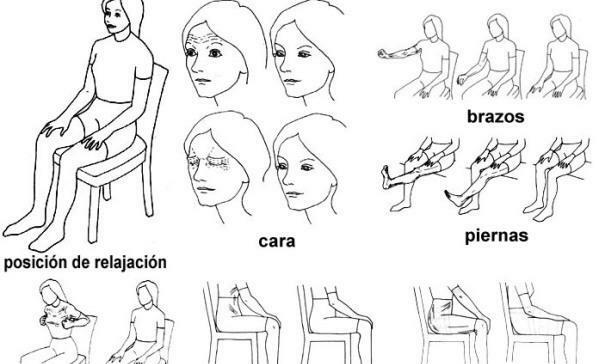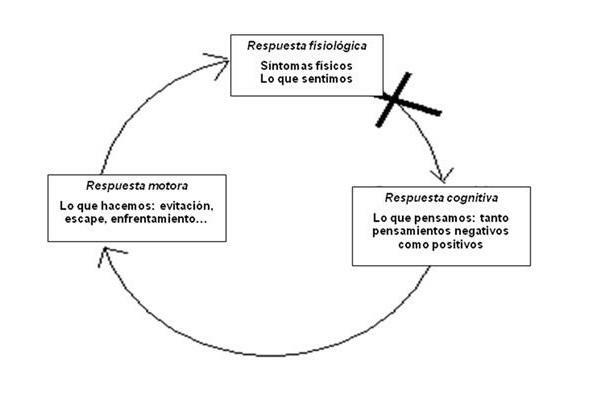For Ana M. Bastida of Miguel. January 31, 2018

Currently, there are many relaxation techniques and any of them can help us to achieve a better psychosomatic state and a better coping with the environment that surrounds us. The pioneers in the field of relaxation as a psychotherapeutic technique were Jacobson and Schultz, back in the 30s, who could already verify the importance that tension and emotional states played in the appearance, development and maintenance of a multitude of psychopathological problems both in children and in Adults. With the development of Psychosomatic Medicine, the important relationship that exists between mind and body as well as its influence on the evolution and development of diseases psychosomatic. Among the many existing techniques, it is the Jacobson's Progressive Muscle Relaxation the one that occupies a privileged place for having been the subject of a multitude of investigations and clinical applications.
Currently, this psychotherapeutic technique is essential in the clinic when treating such diverse problems such as insomnia, phobias, anxiety, hypertension, addictions, migraines, pain of all kinds and pathologies of the most various.
Muscles require a certain tension for their operation, but all this within a constant balance and an appropriate tone for each specific performance. When this tone is no longer adequate and becomes pathological, by exceeding the adaptive thresholds, it ceases to be normal to become harmful to health.
The tension It is going to manifest itself in very different ways depending on each person. Some will suffer tachycardia, chest tightness, muscle contractures..., other abdominal discomfort, vomiting, nausea..., other tremors, dizziness and cramps..., and so on a long etc., accompanied in all cases of Distorted and inappropriate cognitive and motor responses. Knowing how to detect and relax those parts of our body that are altered will be of vital importance when it comes to solving a multitude of anxiety states that do not benefit us at all.
Relaxation like any activity has to be learned and much more if we want to use it as a measure psychotherapeutic, preventive and coping with complex situations or that require a minimum of self-control. The relaxation will be essential to combine it with adequate breathing that helps us to adequately oxygenate the body.
Learning to relax and breathe properly is learning to invest in health and personal satisfaction. So the time spent on it will not be wasted.
When a person experiences anxiety, tension, restlessness, nervousness, restlessness, physical or emotional discomfort... They can be distinguished three components in your reaction:
- Somatic component (Physiological response, what we feel: it includes all the physical manifestations that our body is capable of generating): altered heart rhythm, chest pressure, excessive sweating, shortness of breath or shortness of breath, muscle tension, tremors, stomach upset, dizziness, vomiting ...
- Behavioral component (Motor response, what we do: includes all the responses we emit at the motor level): avoidance or escape from the situation that causes us anxiety or discomfort, confrontation through responses adaptive ...
- Cognitive component (Cognitive response, what we think: includes all the thoughts that we have both negative and positive ones): negative thoughts such as: "I can't take it anymore, it's unbearable, I'm going to lose control"; "I can't stand it", "the same thing always happens to me", "why me" etc..., or positives: "if I relax I'll be able to do it" relaxation is opposed to tension "" with relaxation it is much easier to control "" if I relax the pain will be less"...
The strength of these components varies from person to person, but most people will experience some somatic change followed by negative thinking, which in turn will intensify the somatic reactions to act in one way or another, generating a vicious circle in which we gradually become entangled. As soon as we control any of the responses, we will have controlled and modified the others. Hence the importance of doing a good relaxation as it will allow us to detect and modify some physiological responses that are alarming enough to have a very negative influence on the other two.
Effective way to break the vicious cycle
Learning to deal with somatic reactions instead of overreacting to them.
To achieve this we will use:
- Relaxation training using lung and diaphragmatic breathing.
- Progressive muscle relaxation training.

This article is merely informative, in Psychology-Online we do not have the power to make a diagnosis or recommend a treatment. We invite you to go to a psychologist to treat your particular case.


